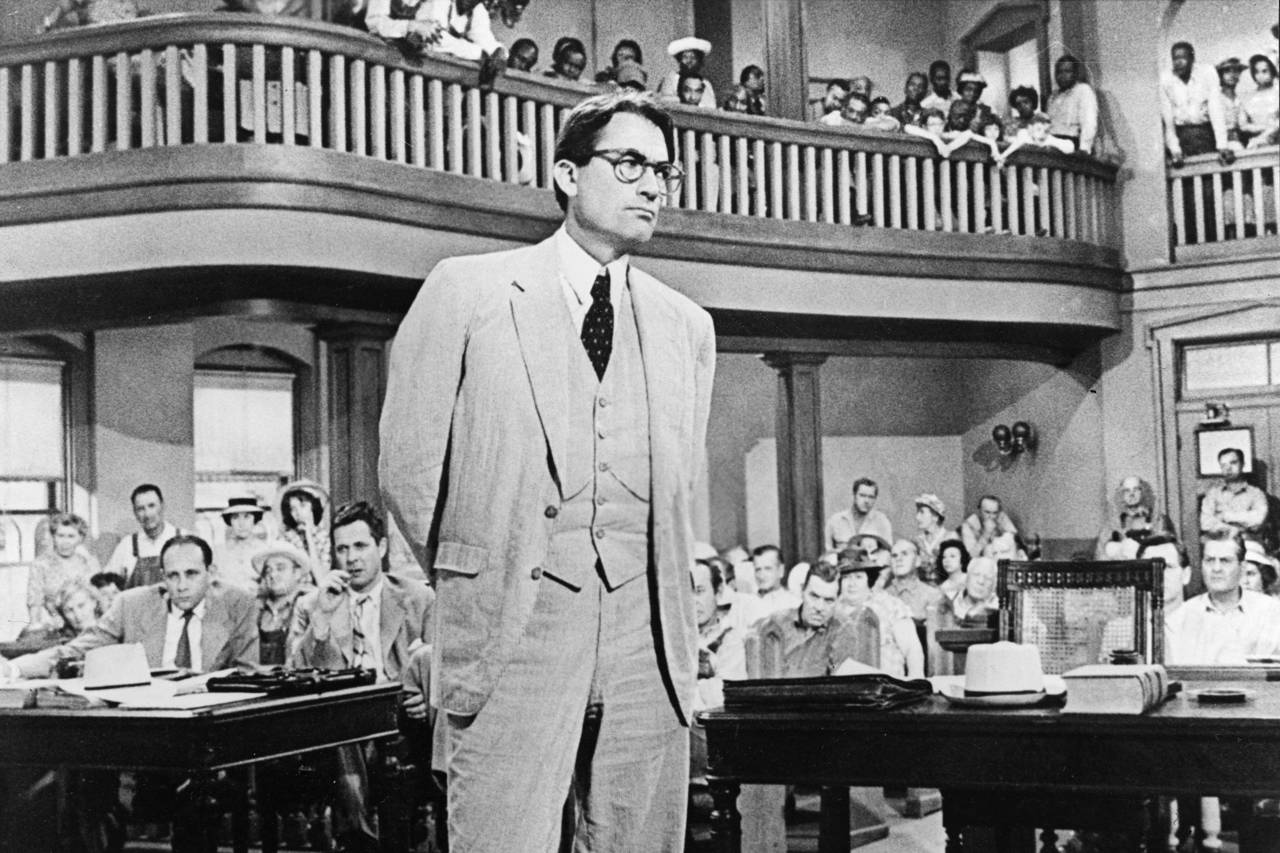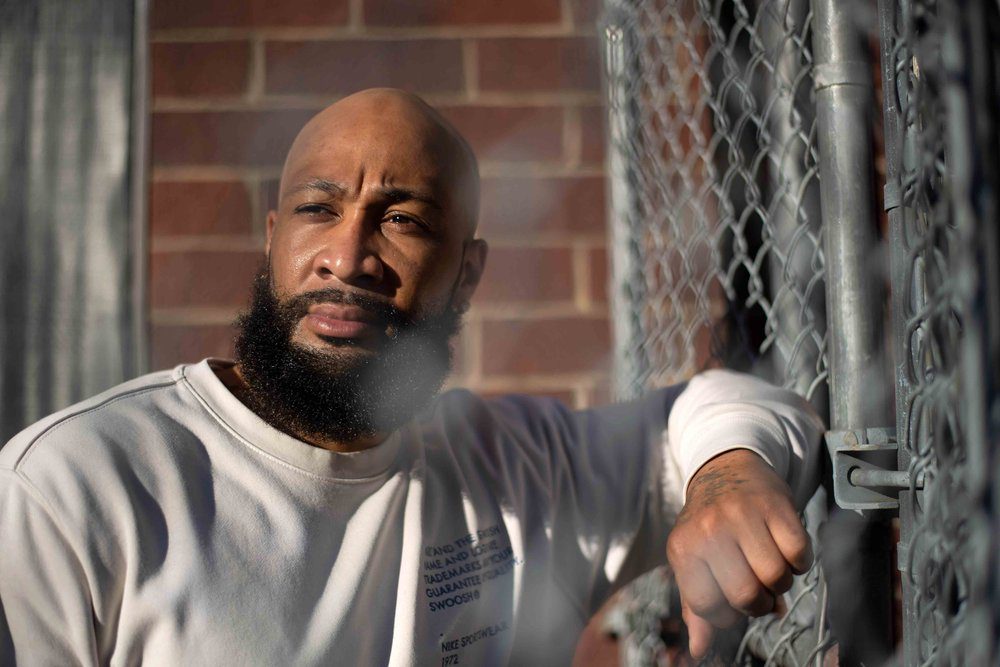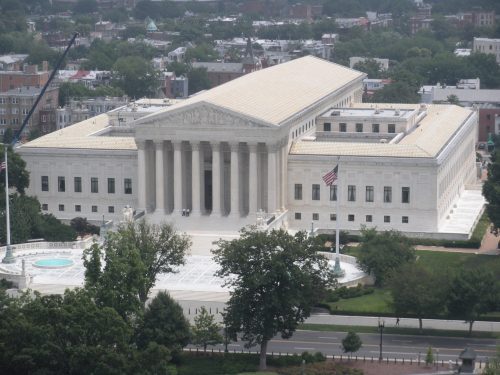Experts have serious concerns about Mississippi’s public defender system

Gregory Peck as Atticus Finch from Harper Lee's "To Kill a Mockingbird"
Experts suggest Mississippi is failing to satisfy its Sixth Amendment duty to provide access to counsel for indigent defendants, costing counties millions and putting the civil rights of thousands in jeopardy.
Andre de Gruy speaks rapidly. The Louisiana native turned Mississippi son is a man on a mission to change the world, or at least his home state. For the last eight years, he’s served as State Public Defender.
His journey in representing the interest of people who often lack advocates goes back further.
In 2001, de Gruy founded the Office of Capital Defense Counsel, where he served to ensure people facing the ultimate punishment were not deprived of an adequate defense.

People like de Gruy fill thankless voids in the justice system. It is easy to dismiss someone accused of a crime as bad, or to assume guilt. Giving aid to people in that position does not always make a lawyer popular.
But in any system where the government has the ability to deprive someone of their liberty, or even their life, access to qualified counsel is important to ensuring a fair trial and that the evidence supports the accusation, according to de Gruy.
“It’s a government responsibility, it’s a function of government, that we have to provide lawyers and that should be done like any other government service in the most efficient and effective way as possible,” de Gruy explained. “That’s why it’s important to include indigent defense in any criminal justice reform, it’s a constitutional mandate.”
Scott Peyton, the Mississippi Director for Right on Crime, agrees with de Gruy. He told Magnolia Tribune that public defenders ensure that the fundamental due process principle of “innocent until proven guilty” applies to every Mississippian, not only those who can afford to finance their own defense.
Mississippi’s Decentralized System
To a large degree, de Gruy’s hands are tied.
The Sixth Amendment to the United States Constitution creates a right to the assistance of counsel for any one charged with a crime. In the 1963 case of Gideon v. Wainwright, the U.S. Supreme Court held that the Sixth Amendment requires states to provide attorneys to criminal defendants who cannot otherwise afford one.
Mississippi created the State Public Defender office in 2011, but much of the responsibility for ensuring the constitutional right to counsel is satisfied falls on local courts. This is because Mississippi’s system for providing an attorney is much more decentralized than other states. Public defenders here are largely appointed directly by the local courts in which they practice.
David Carroll, Executive Director of the Sixth Amendment Center, said the Fourteenth Amendment to the U.S. Constitution obligates states, not local governments, to ensure effective representation under the Sixth Amendment.
“And that’s the big glaring thing, there is no structure in Mississippi state government to provide oversight, set standards, and figure out if the counties and municipalities are in fact meeting the Sixth Amendment or not,” explained Carroll. He referenced a 2018 Sixth Amendment Center Report, that found that many of the counties and municipalities are not meeting their constitutional requirements.
“I don’t want to make it seem like all of Mississippi is bleak, but the trial level in particular is very very problematic,” Carroll said. “When you look at neighboring states, I think you’re going to find a significant difference in what’s happening in other states versus what’s happening in Mississippi.”
Surrounding States
De Gruy explains that in Mississippi, neither the funding for, nor the provision of public defenders, is centralized. Jurisdictions all have their own idiosyncrasies.
The four surrounding states all deliver services differently: Arkansas has a public defender commission that employs all defenders and staff and provides for conflict counsel with 100% state funding. Tennessee elects public defenders and has near 100% state funding (two counties maintain offices that existed at time of their reforms), such that the public defender system mirrors the system for prosecutors. Alabama has 100% state funding administered through their Department of Finance and Administration, with local advisory boards.
He points to our surrounding states as examples of more unified systems. “When you look at our surrounding states, the main difference is with the funding is primarily, or at least 50% state funding and the rest local funding, and there’s state level standards or oversight so there’s more of a consistency across those states as to what kind of representation,” de Gruy said.
“Alabama and Arkansas, the main difference is they are 100% state funded. Now some of the funds may come from fees, but to me it’s all state money, it’s all tax dollars, it’s all public funds regardless of whether it comes through taxes or not,” de Gruy said. “Those two systems are 100% state funded systems and Arkansas, they have district defender offices just like district attorney offices and then they have a central office that’s governed by a board of director that’s appointed, I think, by the Governor.”
“When you look at our surrounding states, the main difference is with the funding. It’s primarily, or at least 50%, state funding. There’s state level standards or oversight, so there’s more of a consistency across those states,” de Gruy explained. Another key factor is how public defenders are selected to serve.
Arkansas has a public defender commission that employs all defenders and staff and provides for conflict counsel with 100% state funding. Tennessee elects public defenders, the same way prosecutors are elected. It has near 100% state funding. Alabama has 100% state funding administered through their Department of Finance and Administration, with local advisory boards.
Deficiencies in the System
The Sixth Amendment Center’s report identified a number of deficiencies in Mississippi’s current system. One perceived fault is that it creates dual loyalty for an attorney. Attorneys are obligated to provide a zealous defense to their client’s interest. In a system where the presiding judge appoints the attorney, that attorney may be disinclined to push the envelope for their client for fear of getting on the court’s bad side and risking future appointments.
The Sixth Amendment Center also contends that payment structures provide disincentive for lawyers to put in the work necessary to offer effective assistance to their clients. With limited payment for their work, the incentive to attorneys is to not spend too much time on their clients cases, and instead to take on a higher volume of cases.
“Because it’s all pushed down to local governments, and local governments have different revenue bases and needs and number of people qualifying, most of the poor counties choose what is called a flat fee contract model, in which the court or the county will contract with a private defense attorney and say ‘you handle all the cases in my court room.’ The problem with that is it incentives the lawyer to do as little work on the case as possible,” Carroll explained.
“If you’re being paid the same amount whether you put a lot of effort into the case or as little as possible, not that every lawyer will make this choice, but there will be lawyers that make a choice to pocket as much money by getting rid of cases as quickly as possible.”
In 2018, at the time the report was published, only seven of Mississippi’s 82 counties had established full-time public defender offices. Only 12 counties in the state provide representation to indigent felony defendants exclusively through appointed private attorneys who are paid an hourly rate.
The “Dead Zone”
Another problem that has appeared within the public defender system is a gap in representation between the time of preliminary hearing and indictment. Cliff Johnson of the MacArthur Justice Institute coined this period as the “dead zone.”
The impact of the dead zone is that people sit in jail for extended periods of time before being indicted with no access to counsel. MacArthur released a study last year that found there were more than 5,800 people incarcerated in Mississippi’s county jails. 2,716 of those detainees have been in jail longer than 90 days. More than 1,000 have been detained at least nine months. 731 have been stuck in county jail over a year.

One example MacArthur points to is Duane Lake. Lake was arrested in 2015 for a double homicide–an obviously serious offense. He sat in jail for two years without access to counsel while he awaited an indictment. His trial did not occur until 2021, at which time he was acquitted of the charges and released. But Lake had spent a total of six years in jail by the time he had his day in court. In the meantime, he lost his wife and his job.
MacArthur has estimated that the total annual cost to counties for incarcerating individuals pre-trial is over $90 million, a figure which they believe could be dramatically reduced by giving people access to counsel to fight for reduced bail and push for the speedy trials guaranteed under the Sixth Amendment.
On April 13, 2023, the Mississippi Supreme Court approved a new rule of criminal procedure that requires that an indigent defendant have access to continuous representation criminal defendants who can’t afford their own attorney must always have one before an indictment.
While the rule creates a mandate, both Carroll and Right on Crime’s Scott Peyton expressed concern about implementation.
“To ensure justice, and prevent unnecessary costs, Mississippi must adequately fund the public defender system to ensure that it operates with the necessary bandwidth, training, and resources,” Peyton continued. “Inadequate support and training leads to what we are facing in Mississippi today, defendants languishing in jails for prolonged periods of time. This does little to support public safety.”
Carroll said without any state agency spot-checking against standards, his guess is that there won’t be a lot of change until counties and municipalities are forced to deal with the rule change.
“Next Step” Plan for the Mississippi Public Defender System
In 2015, a task force was created by the Legislature to examine Mississippi’s Public Defender system. The task force worked closely with the Sixth Amendment Center for three years. In 2018, it released a Final Report and Recommendations for the Legislature.
The Task Force recommended a stronger state-level body that can set objective standards and monitor local public defenders to ensure compliance. For this purpose, they suggested the creation of a commission. For selection of public defenders, they recommended a move away from court appointed defenders to a “district defender” model that would mirror each circuit court’s district attorney office. Finally, they suggested that the state and local governments share the cost of the public defender system.
To date, the Legislature has not heeded any of these recommendations. De Gruy says that the Office of State Public Defender continues to support the recommendations of the task force, but he’s taking baby steps given the Legislature’s reluctance.
The OSPD submitted a plan as the “next step” in development of a statewide public defender system to ensure Constitutional compliance in a fiscally efficient manner.
“This proposal differs from the Mississippi Public Defender Task Force proposal and Sixth Amendment Center recommendations in three significant ways. It does NOT establish a state commission, create district defender offices, nor amend existing statutory authorizations for county public defender offices,” the plan states.
“We believe that a more modest “next step” is more feasible,” the plan continued.
The submitted proposal for “next steps” would allow OSPD to provide representation in any matter in which there is a constitutional right to counsel and tasks OSPD with promulgating practice standards subject to approval by the Supreme Court.
“We think the next step is to get statewide standards and we’ve been pushing this for a few years in the Legislature,” de Gruy said. “This past year in H.B. 840, we had a really simple change to the OSPD authority. We were asking for a change that would allow us to help in cases beyond the death penalty cases.”
“We passed 115-0 in the House and we didn’t make it out of committee in the Senate, so we’ve got work to do on the Senate side next session,” de Gruy continued.
Disclaimer: Russ Latino, founder of the Magnolia Tribune Institute, filed the motion with the Mississippi Supreme Court to change the rules of criminal procedure to ensure that criminal defendants had continuity of representation. In April, the Court adopted the rule.











